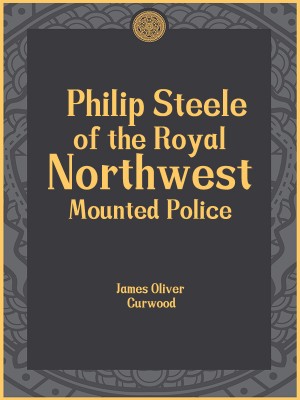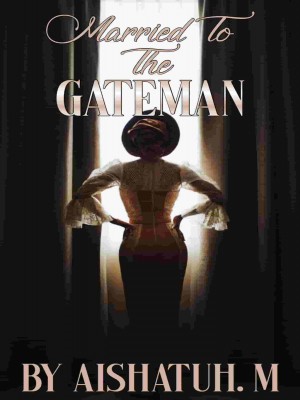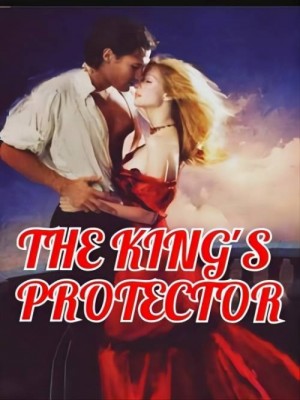
Philip Steele of the Royal Northwest Mounted Police
Philip Steele's pencil drove steadily over the paper, as if the mere writing of a letter he might never mail in some way lessened the loneliness. The wind is blowing a furious gale outside. From off the lake come volleys of sleet, like shot from guns, and all the wild demons of this black night in the wilderness seem bent on tearing apart the huge end-locked ...
Tags
Philip Steele's pencil drove steadily over the paper, as if the merewriting of a letter he might never mail in some way lessened theloneliness.
The wind is blowing a furious gale outside. From off the lake comevolleys of sleet, like shot from guns, and all the wild demons ofthis black night in the wilderness seem bent on tearing apart the hugeend-locked logs that form my cabin home. In truth, it is a terriblenight to be afar from human companionship, with naught but this roaringdesolation about and the air above filled with screeching terrors. Eventhrough thick log walls I can hear the surf roaring among the rocks andbeating the white driftwood like a thousand battering-rams, almost atmy door. It is a night to make one shiver, and in the lulls of the stormthe tall pines above me whistle and wail mournfully as they straightentheir twisted heads after the blasts.
To-morrow this will be a desolation of snow. There will be snow fromhere to Hudson's Bay, from the Bay to the Arctic, and where now thereis all this fury and strife of wind and sleet there will be unendingquiet--the stillness which breeds our tongueless people of the North.But this is small comfort for tonight. Yesterday I caught a little mousein my flour and killed him. I am sorry now, for surely all this troubleand thunder in the night would have driven him out from his home in thewall to keep me company.
It would not be so bad if it were not for the skull. Three times in thelast half-hour I have started to take it down from its shelf over mycrude stone fireplace, where pine logs are blazing. But each time I havefallen back, shivering, into the bed-like chair I have made for myselfout of saplings and caribou skin. It is a human skull. Only a short timeago it was a living man, with a voice, and eyes, and brain--and thatis what makes me uncomfortable. If it were an old skull, it would bedifferent. But it is a new skull. Almost I fancy at times that there islife lurking in the eyeless sockets, where the red firelight from thepitch-weighted logs plays in grewsome flashes; and I fancy, too, that inthe brainless cavities of the skull there must still be some of the oldpassion, stirred into spirit life by the very madness of this night. Ahundred times I have been sorry that I kept the thing, but never more sothan now.
How the wind howls and the pines screech above me! A pailful of snow,plunging down my chimney, sends the chills up my spine as if it were thevery devil himself, and the steam of it surges out and upward and hidesthe skull. It is absurd to go to bed, to make an effort to sleep, forI know what my dreams would be. To-night they would be filled with thisskull--and with visions of a face, a woman's face--
Thus far had Steele written, when with a nervous laugh he sprang fromhis chair, and with something that sounded very near to an oath, in thewild tumult of the storm, crumpled the paper in his hand and flung itamong the blazing logs he had described but a few moments before.
“Confound it, this will never do!” he exclaimed, falling into his ownpeculiar habit of communing with himself. “I say it won't do, PhilSteele; deuce take it if it will! You're getting nervous, sentimental,almost homesick. Ugh, what a beast of a night!”
He turned to the rude stone fireplace again as another blast of snowplunged down the chimney.
“Wish I'd built a fire in the stove instead of there,” he went on,filling his pipe. “Thought it would be a little more cheerful, you know.Lord preserve us, listen to that!”
He began walking up and down the hewn log floor of the cabin, his handsdeep in his pockets, puffing out voluminous clouds of smoke. It wasnot often that Philip Steele's face was unpleasant to look upon, butto-night it wore anything but its natural good humor. It was a strong,thin face, set off by a square jaw, and with clear, steel-gray eyesin which just now there shone a strange glitter, as they rested fora moment upon the white skull over the fire. From his scrutiny of theskull Steele turned to a rough board table, lighted by a twisted bitof cotton cloth, three-quarters submerged in a shallow tin of caribougrease. In the dim light of this improvised lamp there were two letters,opened and soiled, which an Indian had brought up to him from NelsonHouse the day before. One of them was short and to the point. It was anofficial note from headquarters ordering him to join a certain Buck Nomeat Lac Bain, a hundred miles farther north.
It was the second letter which Steele took in his hands for thetwentieth time since it had come to him here, three hundred milesinto the wilderness. There were half-a-dozen pages of it, written in awoman's hand, and from it there rose to his nostrils the faint, sweetperfume of hyacinth. It was this odor that troubled him--that hadtroubled him since yesterday, and that made him restless and almosthomesick to-night. It took him back to things--to the days of not sovery long ago when he had been a part of the life from which the lettercame, and when the world had seemed to hold for him all that one couldwish. In a retrospective flash there passed before him a vision of thosedays, when he, Mr. Philip Steele, son of a multimillionaire banker,was one of the favored few in the social life of a great city; whenfashionable clubs opened their doors to him, and beautiful women smiledupon him, and when, among others, this girl of the hyacinth letter heldout to him the tempting lure of her heart. Her heart? Or was it thetempting of his own wealth? Steele laughed, and his strong white teethgleamed in a half-contemptuous smile as he turned again toward the fire.
He sat down, with the letter still in his hands, and thought of someof those others whom he had known. What had become of Jack Moody, hewondered--the good old Jack of his college days, who had loved this girlof the hyacinth with the whole of his big, honest heart, but who hadn'tbeen given half a show because of his poverty? And where was Whittemore,the young broker whose hopes had fallen with his own financial ruin;and Fordney, who would have cut off ten years of his life for her--andhalf-a-dozen others he might name?
Her heart! Steele laughed softly as he lifted the letter so that thesweet perfume of it came to him more strongly. How she had tempted himfor a time! Almost--that night of the Hawkins' ball--he had surrenderedto her. He half-closed his eyes, and as the logs crackled in thefireplace and the wind roared outside, he saw her again as he had seenher that night--gloriously beautiful; memory of the witchery of hervoice, her hair, her eyes firing his blood like strong wine. And thisbeauty might have been for him, was still his, if he chose. A word fromout of the wilderness, a few lines that he might write to-night--
With a sudden jerk Steele sat bolt upright. One after another hecrumpled the sheets of paper in his hand and tossed all but thesignature page into the fire. The last sheet he kept, studied it for alittle--as if her name were the answer to a problem--then laid it aside.For a few moments there remained still the haunting sweetness of thehyacinth. When it was gone, he gave a last searching sniff, rose to hisfeet with a laugh in which there was some return of his old spirit,hid that final page of her letter in his traveling kit and proceeded torefill his pipe.
More than once Philip Steele had told himself that he was born acentury or two after his time. He had admitted this much to a few ofhis friends, and they had laughed at him. One evening he had opened hisheart a little to the girl of the hyacinth letter, and after that shehad called him eccentric. Within himself he knew that he was unlikeother men, that the blood in him was calling back to almost forgottengenerations, when strong hearts and steady hands counted for manhoodrather than stocks and bonds, and when romance and adventure were notquite dead. At college he took civil engineering, because it seemedto him to breathe the spirit of outdoors; and when he had finished heincurred the wrath of those at home by burying himself for a whole yearwith a surveying expedition in Central America.
It was this expedition that put the finishing touch to Philip Steele.He came back a big hearted, clear minded young fellow, as bronzed as anAztec--a hater of cities and the hothouse varieties of pleasure to whichhe had been born, and as far removed from anticipation of his father'smillions as though they had never been. He possessed a fortune in hisown right, but as yet he had found no use for the income that was pilingup. A second expedition, this time to Brazil, and then he came back--tomeet the girl of the hyacinth letter. And after that, after he hadbroken from the bondage which held Moody, and Fordney, and Whittemore,he went back to his many adventures.
It was the North that held him. In the unending desolations of snowand forest and plain, between Hudson's Bay and the wild country of theAthabasca, he found the few people and the mystery and romance whichcarried him back, and linked him to the dust-covered generations he hadlost. One day a slender, athletically built young man enlisted at Reginafor service in the Northwest Mounted Police. Within six months hehad made several records for himself, and succeeded in having himselfdetailed to service in the extreme North, where man-hunting became thethrilling game of One against One in an empty and voiceless world. Andno one, not even the girl of the hyacinth letter, would have dreamedthat the man who was officially listed as “Private Phil Steele, of theN.W.M.P.,” was Philip Steele, millionaire and gentleman adventurer.
None appreciated the humor of this fact more than Steele himself, and hefell again into his wholesome laugh as he placed a fresh pine log on thefire, wondering what his aristocratic friends--and especially thegirl of the hyacinth letter--would say if they could see him and hisenvironment just at the present moment. In a slow, chuckling survey hetook in the heavy German socks which he had hung to dry close to thefire; his worn shoe-packs, shining in a thick coat of caribou grease,and his single suit of steaming underwear that he had washed aftersupper, and which hung suspended from the ceiling, looking for all theworld, in the half dusk of the cabin, like a very thin and headless man.In this gloom, indeed, but one thing shone out white and distinct--theskull on the little shelf above the fire. As his eyes rested on it,Steele's lips tightened and his face grew dark. With a sudden movementhe reached up and took it in his hands, holding it for a moment so thatthe light from the fire flashed full upon it. In the left side, on aline with the eyeless socket and above the ear, was a hole as large as asmall egg.
“So I'm ordered up to join Nome, the man who did this, eh?” he muttered,fingering the ragged edge. “I could kill him for what happened downthere at Nelson House, M'sieur Janette. Some day--I may.”
He balanced the skull on his finger tips, level with his chin.
“Nice sort of a chap for a Hamlet, I am,” he went on, whimsically. “Ibelieve I'll chuck you into the fire, M'sieur Janette. You're getting onmy nerves.”
He stopped suddenly and lowered the skull to the table.
“No, I won't burn you,” he continued, “I've brought you this far andI'll pack you up to Lac Bain with me. Some morning I'll give you toBucky Nome for breakfast. And then, M'sieur--then we shall see what weshall see.”
Later that night he wrote a few words on a slip of paper and tackedthe paper to the inside of his door. To any who might follow in hisfootsteps it conveyed this information and advice:
NOTICE!
This cabin and what's in it are quasheed by me. Fill your gizzard butnot your pockets.
Steele, Northwest Mounted.
You may also like

Married To The Gateman
Aishatuh M

Social Experiment
etherachel

The King's Protector
Eve Cheney



